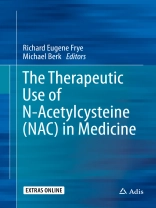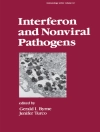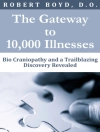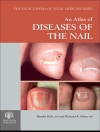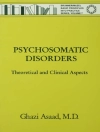Focusing on the practical use of N-Acetyl-Cysteine (NAC) in medicine, this book provides a comprehensive review of the basic biological and clinical studies documenting its benefits in treating medical disease. NAC is perhaps best known as an antidote for acetaminophen, but its therapeutic effect in a wide range of medical diseases has recently been realized. In addition to its well recognized use in radiological contrast prophylaxis for renal disease and pulmonary disorders, studies have suggested significant promise in psychiatric and neurological disorders such as addiction, Alzheimer’s disease, ataxia, autism, bipolar disorder, depression, epilepsy, neuropathy, obsessive-compulsive disorder, schizophrenia, traumatic brain injury and trichotillomania in addition to promising studies in audiology, cardiology, exercise physiology, gastroenterology, hematology, infectious disease, infertility and ophthalmology. Given the promising studies for a wide range of medical conditions, coupled with a excellent safety profile, the potential for NAC in the treatment of human disease appears considerable.
Dr Leonore A Herzenberg from Stanford University, a pioneer of redox physiology and the use of NAC, provides a succinct history of the development of the therapeutic use of NAC for medical disease. This is followed by a series of basic science chapters outlining the role of NAC in important physiological processes, including modulation of dopamine and glutamate neurotransmitter systems, redox and mitochondrial metabolism, apoptosis and inflammation.
The last section of the book is dedicated to clinically oriented chapters that comprehensively review the literature on medical disorders in which NAC has been found to be effective, including toxicity and cardiovascular, gastrointestinal, neurological, psychiatric, pulmonary and renal disorders. Each chapter reviews the theoretical biological mechanisms of NAC for the specific diseases reviewed, rates the clinical studies using a standardized criteria in order to provide an objective level of evidence and grade of recommendation for the use of NAC for specific medical conditions and outlines the ongoing clinical trials examining NAC for the treatment of specific diseases. Final chapters review the clinical evidence verifying that specific theoretical biological mechanisms are actually being targeted by NAC in medical disease. Studies on the pharmacology, formulation and potential adverse effects of NAC are also reviewed. A final chapter synthesizes the clinical studies to suggest that the effectiveness of NAC may signal a new basic physiological disorder, glutathione deficiency, which may be an important pathophysiological mechanism of many diseases.
表中的内容
1. History of N-acetylcysteine.- Part I. The Basic Science of NAC.- 2. Neurotransmitter Systems: glutamate.- 3. Neurotransmitter Systems: Dopamine.- 4. Oxidative Stress in Psychiatric Disorders.- 5. Mitochondrial Metabolism.- 6. Apoptosis.- 7. Inflammation.- Part II. The Clinical Use of NAC.- 8. Clinical Trials on N-Acetylcysteine.- 9. N-Acetylcysteine in the Poisoned Patient.- 10. The use of NAC as a Chelator for Metal Toxicity.- 11. Application of N-Acetylcysteine in Neurological Disorders.- 12. Application of N-Acetylcysteine in Psychiatric Disorders.- 13. Clinical Treatment of Addictive Disorders with N-Acetylcysteine.- 14. The Clinical Use of N-Acetylcysteine for the Treatment and Protection Against Renal Disease.- 15. Application of N-Acetylcysteine in Pulmonary Disorders.- 16. The Clinical Use of N-Acetylcysteine in Cardiology.- 17. The Clinical Use of N-acetylcysteine in Gastrointestinal Disorders.- 18. The Clinical Use of N-Acetylcysteine in Other Medical Disorders.- 19. The Physiological Effects of N-Acetylcysteine in Clinical Studies.- 20. Cysteine/Glutathione Deficiency: A Significant and Treatable Corollary of Disease .- 21. Pharmacology, Formulations and Adverse Effects.
关于作者
Dr. Richard Frye is the Chief of Neurodevelopmental Disorders at the Barrow Neurological Institute at Phoenix Children’s Hospital and Professor of Child Health at the University of Arizona College of Medicine – Phoenix.
Professor Michael Berk is a NHMRC Senior Principal Research Fellow, and is Alfred Deakin Chair of Psychiatry at Deakin University and Barwon Health in Melbourne Australia.
